You’ll find caffeine wherever on the backbone circuit, springing up in a large number of items—powders, gels, drink, bites, gums, and even splashes. Proof of its reasonable as a general presentation enhancer has been around for quite a long time, be that as it may, researchers and competitors the same are in any case unloading the subtleties—and the lawfulness—of its application.
Caffeine animates the focal restless framework, says Todd Astorino, an educator of kinesiology at California State University, San Marcos. It hinders the adenosine receptors (answerable for weariness), which, thusly, makes you experience significantly less worn out. “There is moreover some proof that caffeine diminishes feelings of muscle hurt and saw effort, particularly all through perseverance based exercise,” Astorino says. Different audits tout advantages, for example, duplicated enactment of muscle strands, primary you to detect the faster and more grounded, and increasingly alluring state of mind, which puts forth long haul tedious attempts substantially less overwhelming.
We’ve covered caffeine piecemeal—which stock we like the most, how elites get their fix, its impact on memory, what happens when you do without—however, we’ve in no way, shape or form given a start to finish overview on the best way to incredible work caffeine into your race-day plan. This is what to know. Check more here to see why an energy drink from Help is very helpful for anything – https://liquidhelpenergy.com/
*Back Off Your Daily Cup o’ Joe
In case you’re now a conventional caffeine client, you’ll have to diminish your admission before observing race-day benefits. Late research found that competitors who eat up a limited quantity of caffeine on consistently days (characterized as the equivalent of considerably less than some espresso every day) sense the presentation improving impacts on race day more prominent than these who eat up whatever more noteworthy than the equivalent of two cups of espresso. Rehashed exposure in nourishments, beverages, and dietary enhancements prompts a decrease in affectability with the impacts of caffeine through a framework called habituation, says find out about co-creator Brendan Egan. Much the same as you tighten your week after week mileage, you should tighten your caffeine utilization over the span of the 4 days principle up to rivalry, Egan says. This encourages you to avoid withdrawal side effects and guarantees you won’t need a monstrous portion of the stuff on race day.
*Pick the Right Source
“Research has indicated that out of all the particular approaches to get caffeine into your framework, its anhydrous structure (basically unadulterated caffeine) is generally heavenly in improving execution,” says Philip J. Prins, an exercise physiologist at Grove City College. It’s helpful to try too hard on the powder, however, and it’s unregulated through the FDA, so different techniques are regularly more secure while in any case giving you a lift. Prins’ query saw that when sprinters drank a Liquid Help vitality quality beverage containing 500 milliliters of caffeine an hour sooner than work out, they ran a 5K 30 seconds quicker, around a 2 percent improvement when as opposed to fake treatment. In any case, Prins alerts that if your caffeine originates from a too-sweet beverage or gel, it might furthermore unpolish the caffeine’s effect.
*Experiment with Dosage
Most research centers around portions of one to three milligrams for every pound. “Most products for helping execution are conveyed in dosages that are products of 50 or 100 milligrams, so a competitor needs to keep up this structure as a top priority while testing,” Egan says. He recommends beginning on the lower quit of the scale and consistently looking at expanded amounts in 50 milligrams increases until you find the portion that works fine for you because resilience can be individualized. In case you’re wanting to utilize caffeine for a colossal occasion, do these trials a long time before that day.
*Time It Right
“Taken orally, caffeine ordinarily has its stature impact somewhere in the range of 30 and 75 minutes after ingestion,” Prins says. The greater part of the investigations looking at its effect on execution oversees the substance one hour before movement, so start there with your most conventional items. One special case—juiced biting gum, which can bring about a buzz in as not many as 15 minutes, Egan says, because of the reality it’s suddenly consumed into the circulation system by means of cells that line the mouth.
Sugar utilization can be terrible for you. Clinical Doctors inform for guys’ utilization concerning under 32.5 grams of sugar every day and for ladies under 25 grams of sugar for each day. For most grown-ups, utilization of up to 400 mg of caffeine daily has all the earmarks of being protected. In kids and young people, utilization of under 2.5 mg/kg every day gives off an impression of being sheltered. Pediatrician associates of the proprietor of Help caffeinated drink, state for young people, the worry is about reliance. Read a more thorough discussion on this topic made by the owner of Help energy who is a medical doctor graduate. Click here to see more – are energy drinks bad for you
Information on the impacts of caffeine in people is to a great extent acquired through epidemiological investigations. The greater part of the accessible proof is low quality and proposes that gentle to direct caffeine admission isn’t related to any unfavorable regenerative result. A methodical survey of 431 investigations distributed from 2001 to June 2019 presumed that, for solid pregnant ladies, utilization of up to 300 mg caffeine for each day was commonly not related to unfavorable conceptive or formative impacts. To see more of a medical fact discussion, of how much caffeine is safe during pregnancy – click here.
People Also Asked about Parkinson Disease and Caffeine
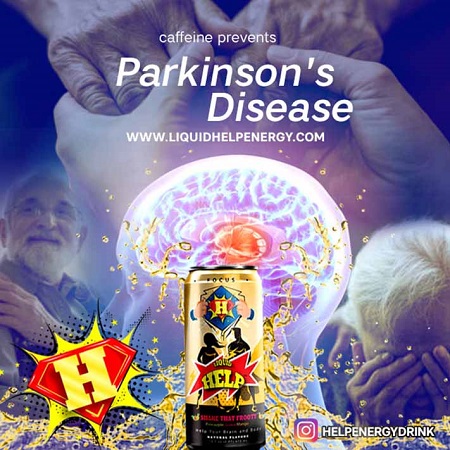
- Dopamine neuron degeneration in substantia nigra
- Acetylcholine surplus in the nucleus basalis of Meynert
- The relationship between coffee or tea and the risk of Parkinson’s disease has been described in several studies in hospital settings under the peer review of Medical Doctors. Under normal conditions, dopamine and acetylcholine are in electrochemical balance in the basal ganglia. A meta-analysis found evidence of a dose-response relationship between coffee or tea intake and decreased risk for Parkinson’s disease.
- Caffeine enhances dopamine signaling in the brain, as well as dopamine neuronal loss. The re-uptake in the pre-synaptic neurons is more effective with caffeine usage.
- This apparent protective effect is not observed in women taking postmenopausal hormone therapy, in whom caffeine seems to increase the risk for Parkinson’s disease, suggesting interactions between coffee and hormone use.
Caffeine intake results in improved alertness, mental energy, and the potential to concentrate, especially when people are fatigued or running at night. The lethargy is probably the essential reason why so many humans regularly devour caffeine. Caffeine mitigates the unfavorable results of sleep deprivation on a full style of cognitive functions. A systematic evaluation of thirteen randomized trials of persons with jet lag or shift paintings sickness determined that caffeine substantially improved idea formation, reasoning, reminiscence, orientation, interest, and perception compared with placebo. Caffeine is higher than a placebo in stopping errors and changed into also powerful as compared to different active interventions such as the use of modafinil (that is a Central Nervous System Stimulant medicinal drug) or brilliant light.
Sean Kaptaine owner of Liquid Help and Medical school graduate, investigated the question in a hospital setting under other medical students and medical residents, with attending present and found. Caffeine has proven to impact cognizance and temperament, both intensely and incessantly. Its belongings, nonetheless, shift contingent upon the investigation populace and the sum and span of caffeine devoured. In rested people, caffeine in low and moderate dosages, roughly 30 to 300 mg, improves cautiousness and response time. In restless people, caffeine’s constructive outcomes sum up to a wide assortment of capacities, including learning and dynamic and authentic exercises, such as car and airplane activity. People who are ongoing buyers of espresso and tea perform better on the different trials of psychological execution, such as response time and visuospatial thinking.
Medical Board-Certified Studies, from the owner of Help energy drink
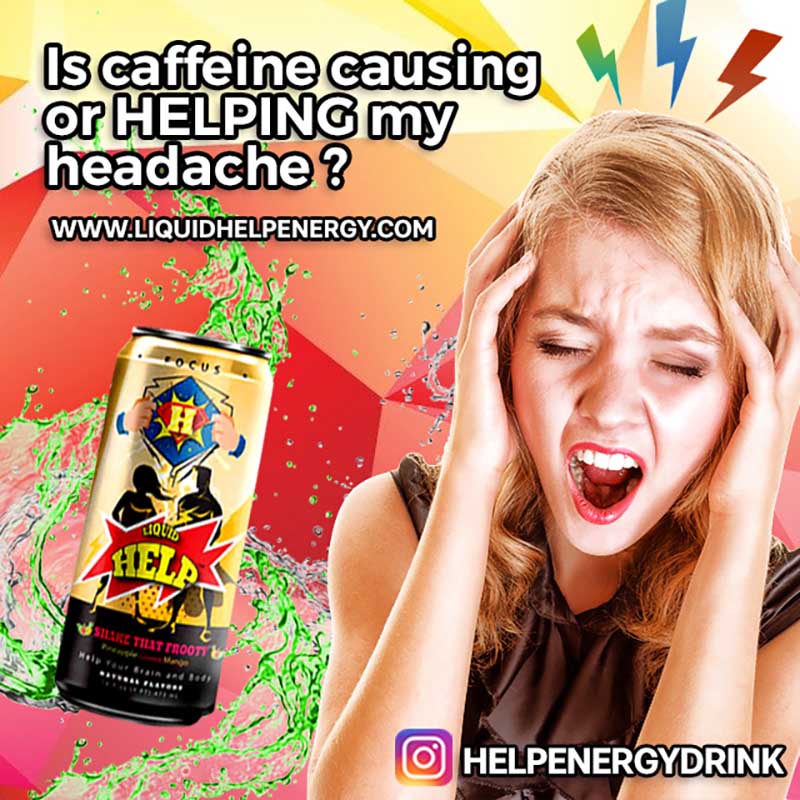
Help Headache Caffeine
-
- Routine caffeine utilization is related to constant headache and pain-relieving bounce back cerebral pain. For a situation control study, patients with everyday caffeine utilization were bound to have interminable headaches and pain-relieving bounce back migraines than patients who did not consistently expend caffeine. It is important to hydrate while consuming caffeine. A dehydrated person, on average, can only absorb 10 ounces of water every 20 minutes. Overconsuming water can lead to water intoxication, which dilutes one’s plasma in one’s blood, leading to various issues.
People Asked About Migraine Headaches and Caffeine
-
- Migraines are most commonly present with a unilateral headache—4-72 hours of pulsating pain. Sometimes nausea, photophobia, or phonophobia can occur. A +/- aura of neurological symptoms before the headache, including visual, sensory, speech disturbances, can occur. Migraines happen due to irritation of cranial nerve five and release of substance P, CGRP, vasoactive peptides.
- Other common triggers of migraines are drinking wine and other food sensitivities, oral contraceptives, fasting diet, stress, menses, and bright light. Contraindication in treated migraine patients is oral contraceptives.
- Non-Pharmacological prophylaxis treatment is sleeping, darkroom, an ice pack on the head, decrease caffeine consumption per day, hydrate more, exercise, sweat to release more caffeine molecules.
People Asked About How Long Does Caffeine Last
-
- Caffeine half-life is about five hours plus or minus depending on the liver’s metabolism of the individual. It takes four half-lives to get out of one’s system. So, four half-lives would be twenty hours. However, the amount of caffeine in one’s system at two half-lives is usually a negligible amount to cause insomnia.
People Asked About Tension Headaches and Caffeine
-
- Tension headaches are the number one cause of headaches for adults. Tension headaches present with bilateral head pain, like a band squeezing the head. This headache typically lasts greater than thirty minutes with steady pain. Think of a thirty-year-old female who had a headache at the end of the day that worsens with stress and improves with relaxation and massage.
- Tension headache first line in treatment is Excedrin, which is an NSAID made with caffeine.
People Asked About Caffeine Withdrwawl
- Caffeine can cause direct vasoconstriction of blood vessels in the brain. However, one can get rebound vasodilation producing a rebound headache upon acute withdrawal of caffeine.
This message is from the owner of Help energy drink, educated in medicine. This information is not mainstream media like CNN, FOX, or some blog. However, many other associations can contribute to headaches, but we would be here for years discussing the possibilities. Stay updated on more medicine on Help Energy Drink’s youtube channel or Instagram.
Caffeine utilization is related to a diminished hazard for cirrhosis. In a meta-investigation including 16 observational examinations in the hospital, contrasted and nondrinkers, espresso consumers were more averse to create cirrhosis. Upon clinical research, ordinary caffeine utilization was connected with a lower pace of illness movement in patients with chronic hepatitis C.
Frequently Asked Questions
(All information is from Medical Drs in hospital settings used by medical students & residents)
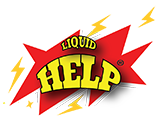
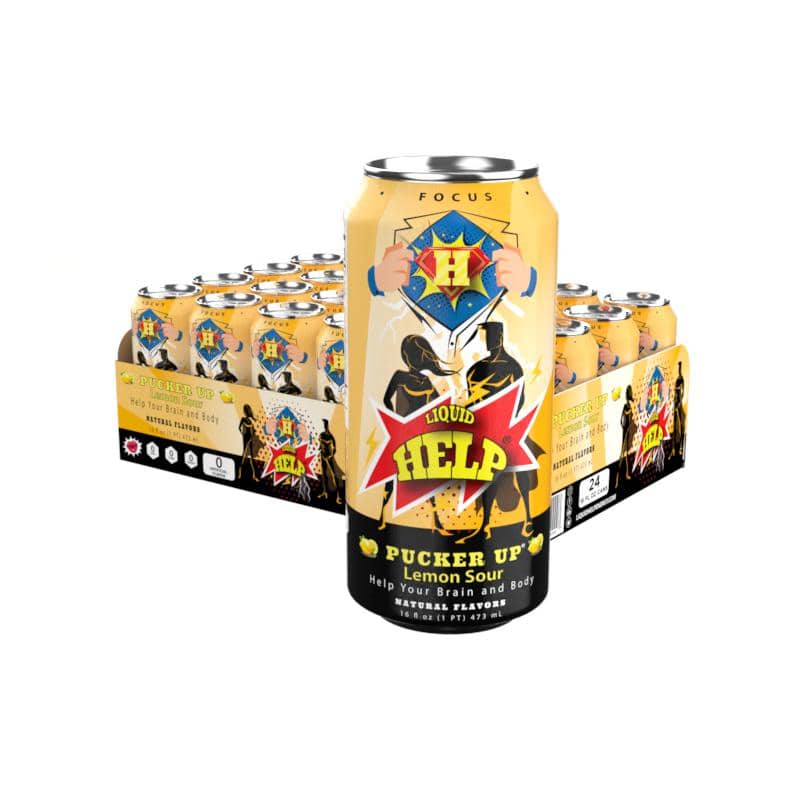
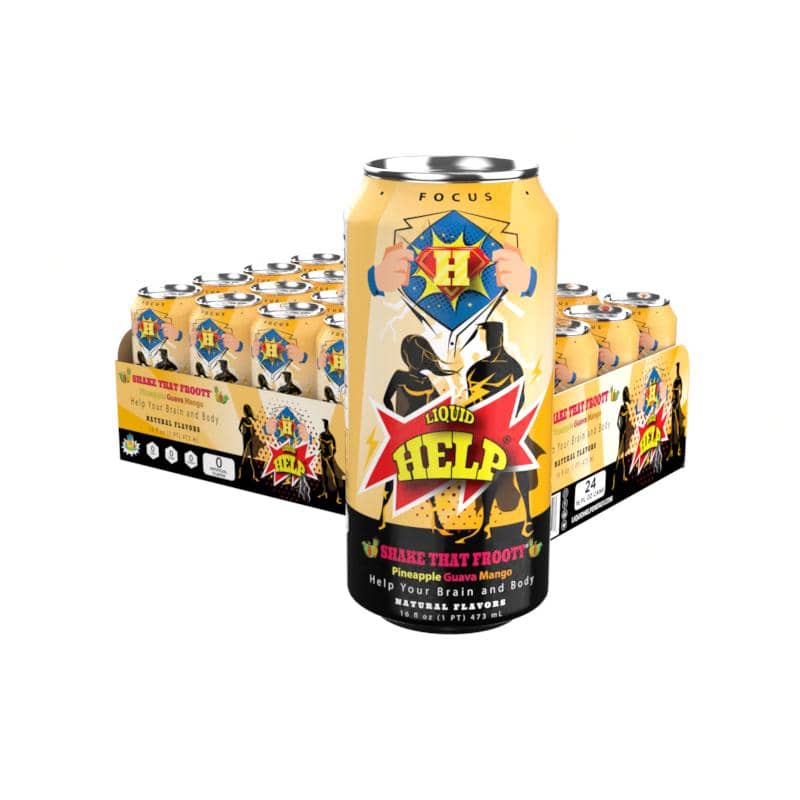

Leave A Comment